|
https://ift.tt/3bYjX3H
The Best Practice Management Software https://ift.tt/2XcKJRB When operating a medical practice, the primary focus is on helping patients feel better, enjoy their lives more, and improve their health. But to do that effectively, it takes expertise in multiple other areas. You need to be able to track appointments, stay on top of billing, manage the scheduling of employees, and stay in contact with patients. The best practice management software can help you do all of this, while saving time and effort. But if the management software for your medical practice is difficult to use, any timesaving benefits disappear. To save the sanity of employees and to allow your practice to run at the best possible efficiency, consider one of our best practice management software recommendations. The 10 Best Practice Management Software SolutionsYou need to present a professional appearance to the patients at your medical practice. Management software does this by enhancing your ability to manage your practice’s day-to-day operations. Some of the key components of this software include:
If your practice cannot generate accurate bills or cannot book appointments without making errors, patients will begin to lose trust in the medical practice. They may wonder whether the practice can care for their health properly if employees cannot even file insurance claims properly. When you want to create a professional appearance for your medical office, using any of the 10 best practice management software solutions on our list will help. AdvancedMD• Excellent feature set For those who already own the AdvancedMD EMR software, its compatibility with AdvancedMD’s practice management software is seamless, creating a powerful combination. But even if you use a different EMR software, you still can use AdvancedMD as your best practice management software, as it has compatibility with many EMR systems. AdvancedMD’s interface is clean and well-organized, but some users will find it time consuming to figure out all of the various features, especially the advanced features. Pros
Cons
Advanced Data Systems MedicsPremier• Reasonable prices For the right medical practice, MedicsPremier will be an excellent choice. But this is a software package that you must choose carefully, because it doesn’t work for everyone. It will especially help a medical practice that needs customization options at a reasonable price. It also has strong insurance claim generation features. However, training is expensive, and some users will find the navigation features difficult to understand. Pros
Cons
AthenaHealth• Streamline billing & claims If your practice struggles when it comes to billing, the creators of athenahealth had you in mind. This software streamlines your billing processes, as well as submission of insurance claims. It even generates highly detailed reports that show areas where your practice’s billing results are lagging behind others in the industry. We also rank athenahealth highly in terms of the training it provides to its customers, getting them up to speed faster than some other software packages. Pros
Cons
CareCloud• Easy to use When you want ease of use above everything else in your practice management software, CareCloud delivers. It has a well-organized interface, making all of the key features easily accessible. We really like CareCloud’s patient portal, which patients will find easy to use. This encourages them to spend more time entering their own data, saving your employees time in the long run. CareCloud also offers a strong EMR system, so you can mesh the two easily, if you’re in the market for an EMR system too. Pros
Cons
DrChrono• Very versatile software With DrChrono, you’ll receive a versatile type of software that can handle the needs of small and large medical practices, offering an efficient interface that will save your employees time. It also has the ability to match any specialty needs that you may have, giving you customization options. Its cost is below other management software solutions, especially the startup costs. Pros
Cons
eClinicalWorks• Best for smaller practices When you want a reasonably priced best practice management software that also provides high end billing services, eClinicalWorks is well worth considering. It fits nicely with practices that need extra help with verifying insurance claim codes before submission, which should reduce the number of rejected claims. If you’d like a software package that can grow with you as your medical practice expands and needs extra services, the multiple customization features in this software give you that option. Pros
Cons
Greenway Health Intergy• Multiple customization options For a medical practice where you’ll have multiple people entering data and using the interface, the Greenway Health Intergy software is helpful. It allows people to enter data and perform tasks in several different ways, so they can work in the manner that makes the most sense to them. This will confuse some people, but it’s perfect for practices where employees like to learn to use software by jumping in and exploring on their own. Pros
Cons
Kareo• Easy to learn to use When a smaller practice is looking for practice management software that isn’t going to break the bank or require a long subscription commitment, Kareo is an excellent choice. The interface is easy to use, but the design is a little older than some others. For those who need full billing services, Kareo has an EMR that works seamlessly with its practice management software. Pros
Cons
NextGen Healthcare• Great for smaller practices Small practices that need multiple services will appreciate NextGen Healthcare. Its customer service is better than what you typically find for smaller practices, especially considering this software’s low price point. If you also need EMR software, NextGen Healthcare’s EMR will mesh well with the brand’s practice management software. Pros
Cons
SimplePractice• Best for specialty practices For specialty practices, SimplePractice has features that will help them manage their specific and unique needs versus general practitioners. This is a popular software package among its customers, generating quite a bit of brand loyalty. It has a competitive price for the small practice, and it has plenty of features to help you stay in contact with patients. Pros
Cons
How to Choose The Best Practice Management Software For YouWhat you’ll quickly learn with practice management software is one product does not fit all clients. With so many choices on the market for helping you manage your medical practice, it’s important to focus in on the features that will help your practice deal with its particular needs. Calculating PaymentsWith the billing and patient management information all in one location with practice management software, you have the ability to calculate the out-of-pocket cost for a procedure before it happens. A patient will be able to make smarter financial choices about when and how he or she would like to have a procedure done. Additionally, when the patient knows exactly what he or she will have to pay out of pocket before coming to the appointment, the medical practice will have a far better chance of being able to collect payment at the time of service, reducing paperwork. When patients feel as though they have more control over their healthcare decisions and costs, their experience is more satisfying. Coordination of SchedulingOne of the key components to running a medical practice efficiently is proper scheduling. Double bookings of patients or not having enough nurses in the office introduce hiccups in the office’s workflow. Medical practice management software keeps the office running smoothly, allowing the proper scheduling that matches the number of planned patients with the personnel required to handle them. Generating ClaimsOne of the most frustrating aspects of medical care for patients is the timeliness of billing statements and insurance claims. No patient wants to receive a bill a few months after an appointment because the medical practice failed to anticipate an insurance claim denial, delaying the entire process. Through practice management software, you can generate reports that show which types of insurance claims often generate rejections on the first attempt, allowing the office to change how it submits those claims. You also can generate reports that show any bottlenecks occurring in the processing of patient billing statements, ensuring that patients receive their charges in a timely manner. Improving EfficiencyEmployees at your medical practice often must handle a variety of tasks, especially at a small practice. Your practice management software interface should not be a hindrance to what you’re trying to accomplish. The interface must be easy to understand and use, allowing one employee to handle scheduling or to generate a report on his or her own. If the software’s features take a long time to learn or add unnecessary steps to performing simple tasks, employees will balk at having to use it. A complex software package may generate impressive statistics about how your practice is running. But if entering the data takes employees so long that they look for shortcuts or skip entering the data entirely, the data in the generated reports will be worthless. Self-Managing for PatientsMany practice management software solutions have a patient portal. This system creates a number of benefits, including:
This automation reduces the number of phone calls into your practice and shortens the length of those phone calls. This allows front desk personnel to handle other tasks, including focusing attention on face-to-face interactions with patients. Specialty NeedsIf your medical practice handles one or more specialty areas, it’s important that the practice management software can handle that specialty. If the software is too general in nature or doesn’t allow customization, it may not work well for your practice. Figuring out whether a particular piece of software can handle the specific needs for your specialty areas can be tricky. This is one area where you may want to speak to practices who have a similar situation to yours and who are already using the software you’re considering. The vendor should be able to put you in contact with some of its other customers for questions. Studying Cash FlowUltimately, you want your medical practice to succeed. The right practice management software can help by generating reports that show your cash flow and your level of profitability. Some software will be able to create more detailed reports than others. A basic system’s reports will show you which types of appointments or physicians are generating the most revenue. More complex reporting software may be able to drill down to show you the demographics of your patients, allowing you to generate efficient advertising or helping you figure out what equipment purchases you will need to make in the future to match the needs of the client base as it ages. System IntegrationMany medical practices have other types of software already in use. The practice management software you select needs to be able to mesh smoothly with these other types of software. For example, if you have an EMR solution already in place, some of the information inside the two systems could overlap. Rather than having employees waste time by entering data into two different systems, the two systems need to share data, so employees only need to enter it once. Practice management software should be able to share data with software running billing systems, as well as EMR and EHR software. (Because of the occasional overlap, if you are wondering whether you need both EMR/EHR and practice management software solutions, understand that EMR/EHR software contains medical information about patients, while practice management software gears itself toward the clerical operation of the practice.) Summary: Delivering Efficiency With Best Practice Management SoftwareWhen patients visit your medical practice, they want to feel better as quickly as possible. They don’t really care all that much about the day-to-day work that your employees must do behind the scenes to make that happen in an efficient manner. But you have to care. Making your medical office run efficiently often means having the best practice management software in hand. With the right software, your employees spend less time on mundane office tasks and more time meeting the needs of patients. Keeping your patients happy and healthy is far easier with the right practice management software, and it will help employees feel happier too. Social Media via Quick Sprout https://ift.tt/UU7LJr April 6, 2020 at 11:37PM
0 Comments
Leave a Reply. |
�
Amazing WeightLossCategories
All
Archives
November 2020
|


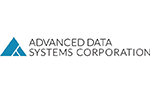
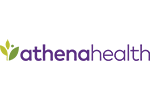
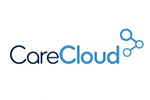
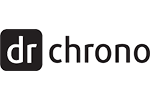
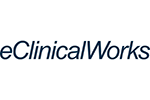

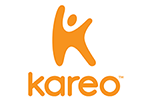
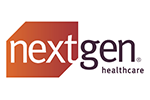
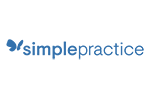

 RSS Feed
RSS Feed
